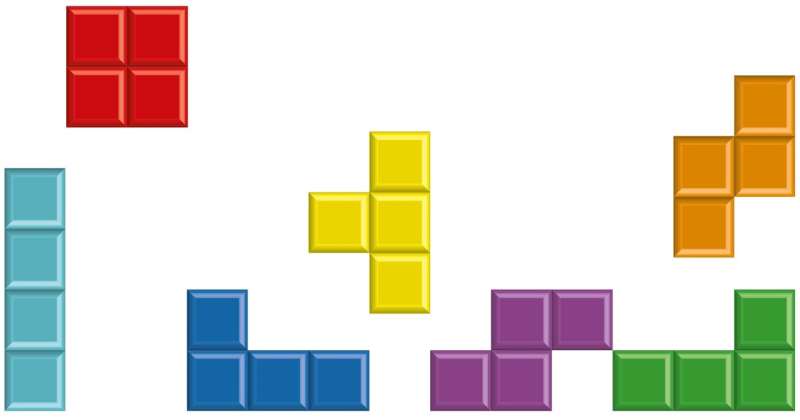This article has been reviewed according to Science X's editorial process and policies. Editors have highlighted the following attributes while ensuring the content's credibility:
fact-checked
trusted source
proofread
How a 13-year-old beat Tetris

An extraordinary thing happened on December 21, 2023: 13-year-old Willis Gibson from Stillwater, Oklahoma, beat Tetris.
You probably have some sense of what Tetris is: a puzzle video game created in 1985 by Soviet software engineer Alexey Pajitnov. Until Gibson's win, no human player had ever cleared every single Tetris screen (there are 157 of them), bringing the score to 999,999 and causing the game to freeze.
Jason Wiser, who has taught game design in Tufts' Department of Computer Science since 2015, was inspired by Gibson's achievement to revisit a version of the classic game. "I cleared maybe 60 lines (about seven screens) before I became aware of how fast the pieces were dropping," he said, "and then I lost very quickly."
Wiser sat down with Tufts Now to put Gibson's win in context, explaining that, because of recent "massive mergers" and widespread layoffs within the game design industry, this is a particularly welcome moment for such an accomplishment. "Seeing Willis Gibson's joy is an absolute delight," he said.
What principles of good video game design have made Tetris so appealing to so many people for such a long time?
In my course at Tufts, we discuss the concept of the Difficulty Curve—games that increase in difficulty as the player increases in skill, games that are easy to pick up and then reward deep practice. Tetris does this particularly well. You want players to feel almost like they are about to lose most of the time, and then when they win, they feel this huge excitement, like, "Oh my god, I beat this game!"
Is there anything to read into the fact that Tetris was beaten by a 13-year-old rather than an older person?
Tetris seems very simple, but it's difficult to make quick judgments about how you're going to place a piece—and then the game goes faster and faster. It's remarkable, honestly, to imagine anybody, of any age, being able to react quickly enough to play it past 100 lines, but there are people who have developed exceptional skills with this game.
As a 13-year-old, Gibson presumably has both some free time and a younger person's reflexes. But he also must be extraordinarily determined; what he did is not easy. He had to master a particular technique called rolling. You can watch videos of him doing it: one hand covered in a blue glove, the other rapidly pressing buttons.
He's using hand-eye coordination. He's making mental calculations related to choosing drop-down pieces and rotating them. It's very impressive—a feat of extraordinary physical and mental achievement.
In the video of him reacting to having reached the kill screen, you can see his entire body explode with joy. He loses control of his breathing a little bit; he talks about how he can't feel his fingers. The game designer and happiness expert Dr. Jane McGonagall, Ph.D., has written about U.S. soccer player Brandi Chastain's reaction when Chastain's team won the 1990 FIFA world cup: She ripped off her shirt, got on her knees in front of a packed stadium, and roared—it's an iconic moment of extraordinary joy in sports. That's what Gibson's achievement might be compared to: it's as if there was an entire stadium of thousands of people watching, and he earned this amazing moment of joy.
Are there other classic video games that have yet to be beaten in the same way?
With Tetris there's been a mythology around reaching the kill screen; I'm not aware of another classic game with that same mythology.
Nobody, I think, ever expected anyone to develop the skill and reflexes to reach this high a score. But, ultimately, gamers set their own goals. That's both an exciting and a challenging thing for designers. We try to set goals for players, to create parameters that circumscribe their decisions, to give them opportunities for grand achievements—but we're not there when they're actually playing. It was the gaming community that created the "beat Tetris" goal, separately from the intention behind the game, and that's part of the magic of all this.


















